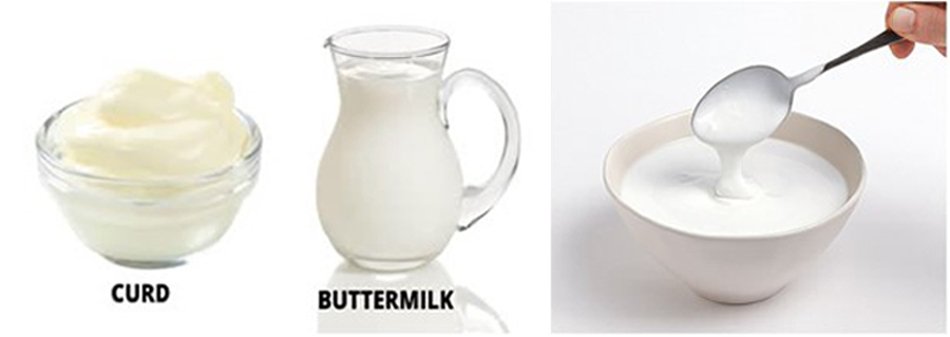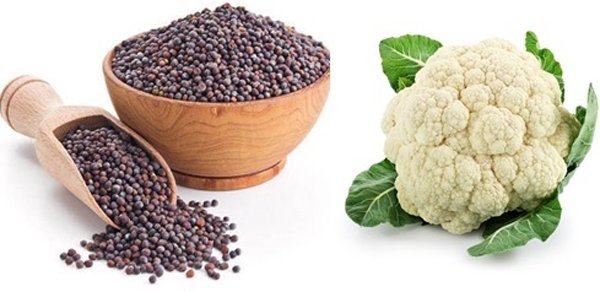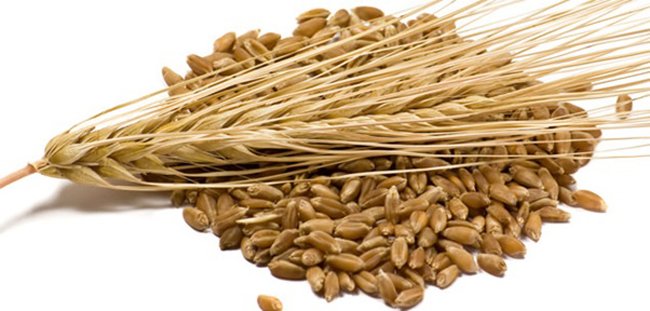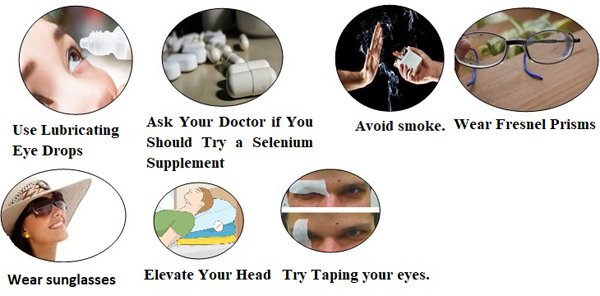.jpg)
?THYROID EYE DISEASE

What is Thyroid Eye Disease (TED)?
Thyroid eye disease is a condition in which the eye muscles, eyelids, tear glands and fatty tissues behind the eye become inflamed. This can cause the eyes and eyelids to become red, swollen and uncomfortable and the eyes can be pushed forward (‘staring’ or ‘bulging’ eyes).
In some cases there is swelling and stiffness of the muscles that move the eyes so that they no longer move in line with each other; this can cause double vision.In thyroid eye disease the muscles and fatty tissues within the eye socket (orbit) become inflamed and swollen, pushing the eyeball forward and affecting the movements of the eye. This causes bulging eyes (what doctors call exophthalmos). In severe cases vision may be affected. It is usually (but not always) associated with an overactive thyroid gland (hyperthyroidism) - and most often with one particular cause of an overactive thyroid gland, Graves' disease.
Rarely TED can cause reduced vision from pressure on the nerve at the back of the eye or ulcers forming on the front of the eyes if the eyelids cannot close completely.
THYROID EYE DISEASE - SYMPTOMS:


1. swelling in the eyelids.
2. dry or watery eyes.
3. double vision.
4. difficulty moving the eyes.
5. vision loss.
6. difficulty closing the eyes.
7. deteriorating vision
what causes thyroid?
Problems with the thyroid can be caused by: iodine deficiency. autoimmune diseases, in which the immune system attacks the thyroid, leading either to hyperthyroidism (caused by Graves' disease) or hypothyroidism (caused by Hashimoto's disease) inflammation (which may or may not cause pain), caused by a virus.

What is hypothyroidism?
The thyroid gland is a small, butterfly-shaped gland that sits near the base of your neck.
It makes and stores thyroid hormones that affect nearly every cell in your body .
When the thyroid gland receives a signal called thyroid-stimulating hormone (TSH), it releases thyroid hormones into the bloodstream. This signal is sent from the pituitary gland, a small gland found at the base of your brain, when thyroid hormone levels are low .
Occasionally, the thyroid gland doesn’t release thyroid hormones, even when there is plenty of TSH. This is called primary hypothyroidism and the most common type of hypothyroidism.
Approximately 90% of primary hypothyroidism is caused by Hashimoto’s thyroiditis, an autoimmune disease in which your immune system mistakenly attacks your thyroid gland .
Is banana good for hypothyroidism?

Bananas are really good for hypothyroidism. Having two or three bananas is highly recommended in hypothyroidism. The foods that you must avoid are cabbage, cauliflower, soya beans, kale, brusselsprouts,etc.
What is the best breakfast for hypothyroidism?

Oatmeal with fruit makes a healthy breakfast for people with hypothyroidism. If you have a hypothyroid condition, your thyroid does not produce enough hormones for your body to function normally. The most common treatment for hypothryoidism is the medication levothyroxine, a synthetic hormone.
Foods to avoid:
Fortunately, you don’t have to avoid many foods if you have hypothyroidism.
However, foods that contain goitrogens should be eaten in moderation and ideally cooked.
You may want to avoid eating highly processed foods, as they usually contain a lot of calories. This can be a problem if you have hypothyroidism, as you may gain weight easily.
Here is a list of foods and supplements you may want to avoid:
.jpg)
FOODS TO EAT IN HYPOTHYRODISM

1. walnut, almond, cashew, pistachio and peanut are all high in selenium, which is necessary to convert the thyroid hormone T4 to T3. Don't overdo it, though, because these nuts are high in fat and a little selenium will go a long way.
2. Fruit:

Fruits like dates great sources of iodine, which is essential to the production of the two thyroid hormones, T3 and T4. A half a cup of cranberries contains 400 mcg of iodine and you can buy them fresh or frozen and add them to smoothies.
3. Herbs:

Herbs like ginger, turmeric and cinnamon are good, warming herbs that will help rev up your metabolism, which is important for people with low thyroid function.
4. Meat and fish:

Protein from meat and fish serves as an important building block for hormones. When choosing meat, try to eat organic, free range white meatlike chicken.
5. Probiotics:

Probiotics are important in keeping your gut bacteria at healthy levels. Good sources of probiotics include curd and yogart.
6. Seaweed:

A main nutrient in seaweed is iodine. hypothyroidism may come about due to iodine deficiency, so it’s important to ask your doctor to evaluate if you are getting enough iodine in your diet.
7. Complex carbs:

Complex carbs like whole grain bread or brown rice is a great staple to add to your diet for your overall health, but it is also helpful in managing thyroid problems.
8. Veggies:

Certain vegetables like peas may help boost thyroid function by providing essential nutrients such as iodine or zinc.
9. Healthy fats:

Olive oil and sunflower seeds are good options to add to your diet.
10. Vitamin D:

Studies have shown that vitamin D deficiency is associated with the severity of hypothyroidism. To ease symptoms of hypothyroidism, increase your intake of vitamin D, through supplements after speaking with your doctor or through natural sources like milk or fatty fish like salmon.
11. Selenium:

Increased selenium intake has shown promising results in the synthesis of thyroid hormones, according to recent studies. Good source of selenium are brazil nuts and various fish like tuna, yellowfin, or halibut.
What is hyperthyroidism?
hyperthyroidism is the overactivity of your thyroid — a state that results in an excess of thyroid hormones.

Foods to eat if you have hyperthyroidism
Low-iodine foods:
The mineral iodine plays a key role in making thyroid hormones. A low-iodine diet helps to reduce thyroid hormones. Add these foods to your daily diet:

• non-iodized salt
• coffee or tea (without milk or dairy- or soy-based creamers)
• egg whites
• fresh or canned fruit
• unsalted nuts and nut butters
• homemade bread or breads made without salt, dairy, and eggs
• popcorn
• oats
• potatoes
• honey
Cruciferous vegetables:

Cruciferous vegetables and other types may stop your thyroid from using iodine properly. They may be beneficial for hyperthyroidism:
• cauliflower
• mustard
Vitamins and minerals:
Several nutrients are essential for thyroid health and to balance thyroid hormone production.
Iron:
Iron is important for many vital bodily functions, including thyroid health. This mineral is needed for blood cells to carry oxygen to every cell in your body.
Low levels of iron are linked to hyperthyroidism. Get plenty of iron in your diet with foods such as:

• dried beans
• green leafy vegetables
• lentils
• nuts
• poultry, such as chicken and turkey
• red meat
• seeds
• whole grains
Selenium:

Selenium-rich foods may help to balance thyroid hormone levels and protect your thyroid from disease. Selenium helps to prevent cell damage and keep your thyroid and other tissues healthy.
Good food sources of selenium include:
• mushrooms
• tea
• meat, such as beef and lamb
• rice
• poultry, such as chicken and turkey
• sunflower seeds
Zinc:
Zinc helps you use food for energy. This mineral also helps keep your immune system and thyroid healthy. Food sources of zinc include:
• beef
• mushrooms
Calcium and vitamin D:
Hyperthyroidism causes weak and brittle bones. Bone mass may be restored with treatment. Vitamin D and calcium are necessary for building healthy bones.
Calcium-rich foods include:

• spinach
• white beans
• calcium-fortified orange juice
• calcium-fortified cereals
Vitamin D is found in these low-iodine foods:
• vitamin D-fortified orange juice
• vitamin D-fortified cereals
• beef liver
• mushrooms
• fatty fish
Foods to avoid if you have hyperthyroidism
Excess iodine:
Eating too many iodine-rich or iodine-fortified foods may lead to hyperthyroidism or worsen it in some cases.
According to the National Institutes of Health (NIH), a teaspoon of iodized salt contains 304 micrograms (mcg)Trusted Source of iodine.
Seafood has the most iodine. Just 1 gram of seaweed contains 23.2 mcgTrusted Source, or .02 milligrams (mg), of iodine.
The recommended daily dose of iodine is about 150 mcgTrusted Source (0.15 mg), according to the NIH. A low-iodine diet requires even less.
Avoid the following seafood and seafood additives:

• fish
• seaweed
• prawns
• crabs
• lobster
Avoid other foods high in iodine such as:

• milk and dairy
• cheese
• egg yolks
• iodized salt
• iodized water
• some food colorings
Some medications also contain iodine. These include:
• amiodarone (Nexterone)
• cough syrups
• medical contrast dyes
• herbal or vitamin supplements
Gluten:
In some people, gluten may harm the thyroid by causing inflammation. Even if you don’t have a gluten allergy or intolerance, it may be beneficial to restrict or limit gluten.
Check food labels for gluten-containing ingredients such as:

• wheat
• barley
Soy:
While soy doesn’t contain iodine, it’s been shown to interfere with some treatments for hyperthyroidism in animals. Avoid or limit foods with soy such as:
• soy milk
• soy sauce
Caffeine:

Foods and beverages that contain caffeine, such as coffee, tea, soda, and chocolate, can exacerbate the symptoms of hyperthyroidism and lead to increased anxiety, nervousness, irritability, and rapid heart rate.
If caffeine has this effect on you, avoiding or limiting your intake may be a good option. Try replacing caffeinated beverages with natural herbal teas, flavored water, or hot apple cider.
Is milk good for hyperthyroidism?

• Consumption of whole milk is not good for individuals with hyperthyroidism. Skim milk or organic milk is a much better option which is healthy and easier to digest.
INVESTIGATION FOR THYROID EYE DISEASE
1. SLIT LAMP EXAMINATION:
.jpg)
This is done to detect any external changes in the eye.
2. INTRAOCULAR PRESSURE

This is done to detect elevated IOP.
3. FUNDUS CAMERA

This is done to detect any optic nerve damage.
4. BLOOD TEST INVESTIGATION:
Thyroid disorders are generally diagnosed by detecting abnormalities in patient’s blood work. Thyroid-stimulating hormone (TSH) and thyroid hormones (T3,T4) can be altered in ways that allow the physician to tell if the body is secreting more or less hormone than normal. During treatment, these hormone levels may also be tracked to determine if the therapy is controlling the hormone levels.

5. Scans:
Occassionally, thyroid scans and uptake tests need to be done to see how actively the thyroid gland is working.
CT SCAN:

A CT scan is a form of X-raying that involves a large X-ray machine. CT scans are sometimes called CAT scans.
MRI Scan:

An MRI scan is a safe and painless test that can provide detailed pictures of organs and other structures inside your body.
6.Exophthalmometer:


An exophthalmometer is an instrument used for measuring the degree of forward displacement of the eye in exophthalmos. The device allows measurement of the forward distance of the lateral orbital rim to the front of the cornea. Exophthalmometers can also identify enophthalmos (retraction of the eye into the orbit), a sign of blow-out fracture or certain neoplasms.
THYROID EYE DISEASE MANAGEMENT
Thyroid eye disease is a self-limiting disease: if left untreated, the inflammation will gradually go by itself. However, the physical changes caused by the swelling (such as bulging eyes) may remain. This is because some of the tissues that have been stretched may not always return to their original form. The aim of treatment is mainly to limit inflammation and swelling occurring during the inflamed period and to protect the surface of the eye. There are also treatments for people whose tissues have not been able to return to their original form after the inflammation has settled.
Thyroid eye disease is managed by a specialist eye doctor (ophthalmologist) and the underlying thyroid problem by your own doctor or by aa specialist in the hormone systems of the body (an endocrinologist).
Medicines:

Surgical treatment:

• About 5 in 100 people with thyroid eye disease have such severe disease that the optic nerve (connecting the back of the eyeball to the brain) is compressed. This can permanently damage your vision. If this is the case, the doctor may decide to organise decompression surgery. This is a procedure that creates a space within the eye socket (orbit) for the inflamed tissues to spread into. This relieves the pressure on the nerve.
• Some people find that once the inflammation has settled, they are left with unacceptably bulgy eyes. In some cases surgery on the orbit will allow the eyeballs to settle back into the sockets.
• Occasionally, surgery to the stretched muscles or to the lids is needed to help normal function.
Types of surgery:

There are 3 main types of surgery that may be done on people with exophthalmos, although it's unusual for someone to have all 3. These include:
• orbital decompression surgery, where a small amount of bone is removed from 1 or both of your eye sockets
• eyelid surgery to improve the position, closure or appearance of your eyelids
• eye muscle surgery to bring your eyes into alignment and reduce double vision
Orbital decompression surgery:
Orbital decompression surgery is most often done to improve the appearance of the eyes in people with thyroid eye disease who are affected by exophthalmos. It may also be required to reduce pressure on the optic nerve.
Counseling and support groups:
What they do: “ Stress reduction is important to deal with the negative consequences of any disease,” says Silkiss. “With thyroid eye disease, not only do the bulging eyes cause emotional stress, but the disease itself affects parts of the brain responsible for anger management and executive decision making.”
Who should use them: People with thyroid eye disease who’ve seen a decline in their quality of life and mental health are good candidates for counselling and support groups.
.jpg)

1.jpg)
{{r.reply}}
Your comment was submitted for review. It will start display once it was approved by Admin
Comments